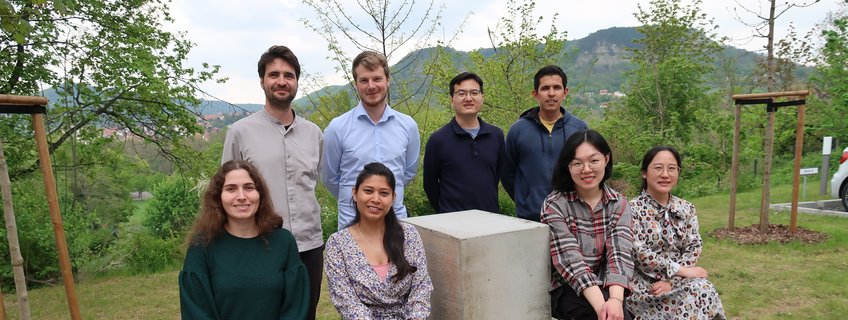
Atmosphere-Biosphere Coupling, Climate and Causality (ABC3)
Dr. Alexander J. Winkler
News
Mission
The Atmosphere-Biosphere Coupling, Climate and Causality research group focuses on identifying feedbacks and causal links in the exchange of carbon, water and energy fluxes between the terrestrial biosphere and atmosphere. In particular, we aim to understand how this coupled system changes under rising atmospheric CO2 concentration. We use models of varying complexity (conceptual models to fully coupled Earth system models) and combine our research with statistical analysis and modelling (machine learning to hybrid modelling) based on various Earth observation data streams.

Current key items of the ABC3 research group:
Methodological and Conceptual Approaches
- Exploring the application of modern machine learning / deep learning methods in Earth system research with a focus on obtaining interpretability to improve process understanding
- Developing hybrid-modelling approaches (i.e. theory-guided fusion of data-driven and mechanistic models) of land-atmosphere interactions
Overarching Research Objectives:
- Disentangling the different effects of rising atmospheric CO2 concentration and other confounding factors in Earth observations and model simulations using causal inference
- Understanding the causal drivers of phenological changes in in-situ and satellite observations and identify the biogeophysical and biogeochemical feedbacks to the climate system
- Isolating and quantifying direct and indirect effects in the atmosphere-biosphere coupling in controlling anomalies in carbon fixation
- Determining constraints of key entities in the carbon cycle climate system by linking multi-model ensemble simulations and observational data
Team
Name
Phone
Fax
Email
Room
Links
Alexander Winkler
Group Leader
- +49 3641 57-8923
B3.005
Niels Behr
Doctoral Researcher
B3.28
Vitus Benson
Doctoral Researcher
C2.004
Júlia Crespin
Doctoral Researcher
ITP B3.26
Jiayi Ding
Doctoral Researcher
- +49 3641 57-8903
B3.30
Reda El Ghawi
Doctoral Researcher
- +49 3641 57-8906
B3.24
Jonathan Groß
Intern
- +49 3641 57-8907
B3.25
David Hafezi Rachti
Student Assistant
- +49 3641 57-8924
ITP B3.25
Olivia Hau
Student Assistant
Praveen Kumar
PostDoc
- +49 3641 57-6222
C3.005
Yao Li
Doctoral Researcher
- +49 3641 57-0904
ITP B3.30
Mauricio Lima
Doctoral Researcher
Ėamon Ó Catháin
Master Student
Christian Reimers
Project Group Leader, PostDoc
- +49 3641 57-8947
B3.25
Sabrina Viel
Student Assistant
Xin Yu
Doctoral Researcher
- +49 3641 57-8913
ITP B3.26
Chunhui Zhan
Doctoral Researcher
- +49 3641 57-8910
ITP B3.26
Jinfeng Zhao
Doctoral Researcher
- +49 3641 57-8919
ITP B3.25





